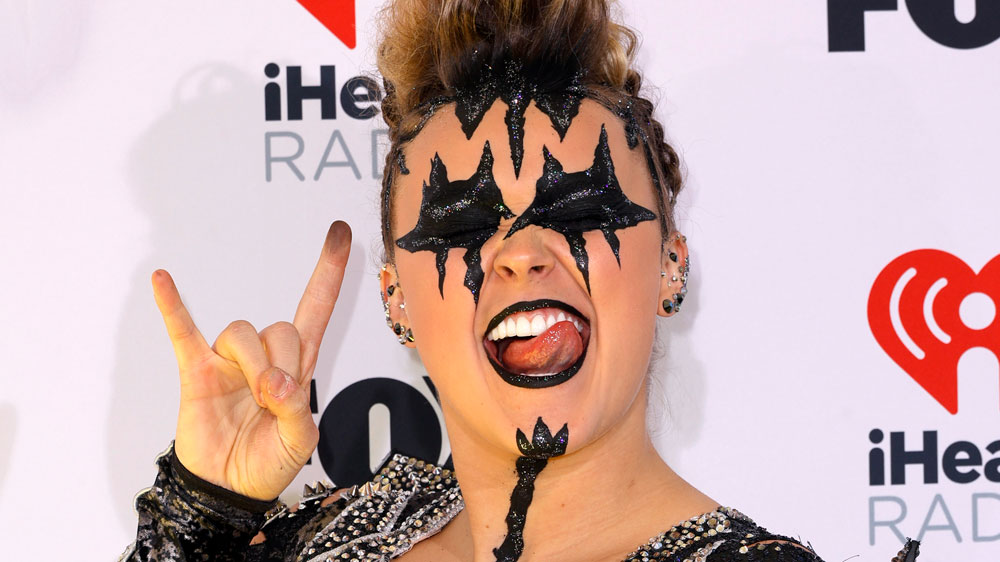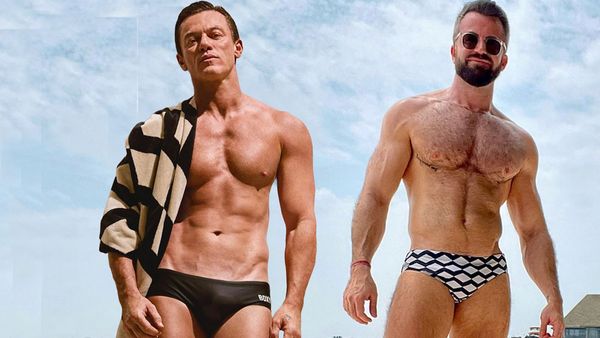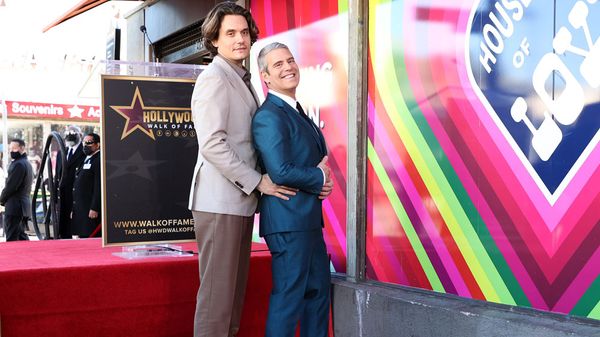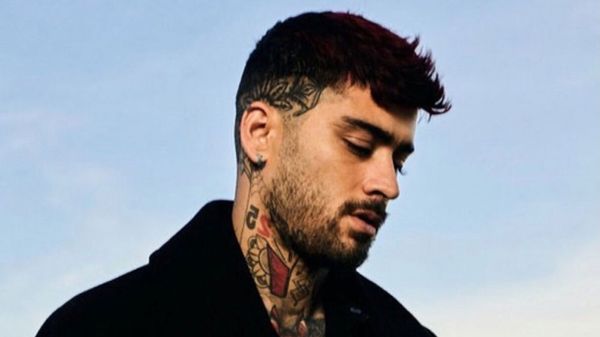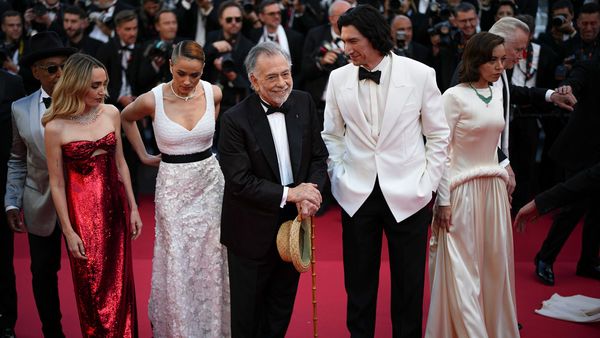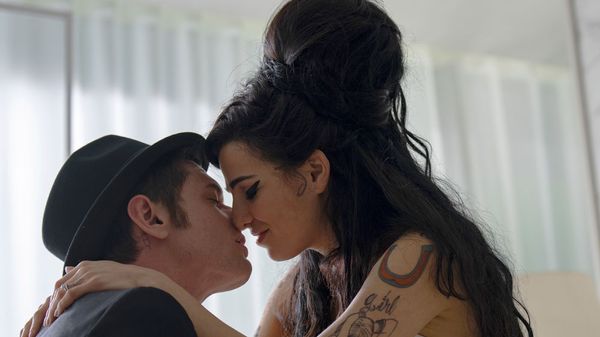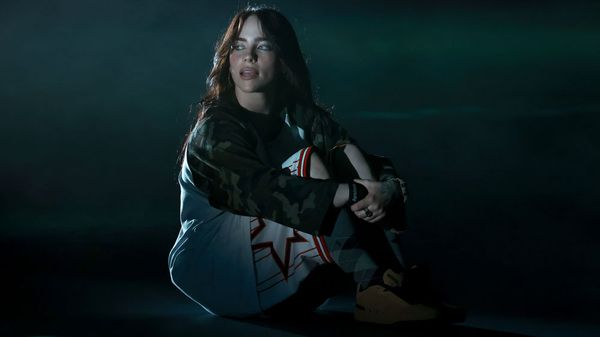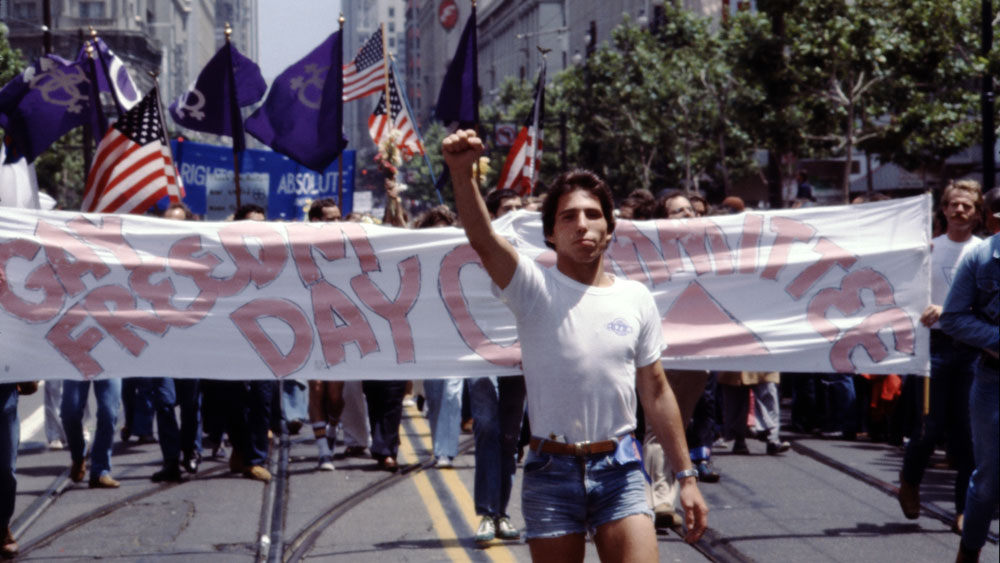
May 6
'It's Amazing!' GLAAD's Jenni Olson on Restoring 'Gay USA,' Arthur Bressan Jr.'s Seminal Doc on Gay Pride 1977
Kilian Melloy READ TIME: 8 MIN.
Filmmaker Arthur Bressan Jr. was many things: A director of features like the groundbreaking "Buddies" (1985), which was the first American movie to take the AIDS epidemic as a subject; a creator of gay adult entertainment that blended erotic and serious cinematic material; a champion for equality at a time when loud voices of hate like Anita Bryant were dismissing LGBTQ+ Americans as "human garbage"; and an influential documentarian whose 1978 film "Gay USA: Snapshots of 1970s LGBT Resistance" has been acknowledged as the first documentary about the LGTBQ+ community made by someone who was actually part of the community.
The social and political backdrop for "Gay USA," which features footage taken at Pride celebrations around the country in the summer of 1977, was particularly fraught. The LGBTQ+ community had been shaken by the horrific murder of Robert Hillsborough, a 33-year-old San Francisco man who was slain by four young men on June 21, 1977. The killers had followed Hillsborough home, where they stabbed him 15 times while screaming anti-gay slurs and shouting, "This one's for Anita." Pride celebrants soberly reference the brutal hate crime in the course of the film, which is dedicated to Hillsborough's memory.
Watch the trailer to "Gay USA: Snapshots of 1970s LGBT Resistance"
GLAAD Social Media Safety Program Director Jenni Olson, a filmmaker in her own right, works with the UCLA Film & Television Archive Outfest UCLA Legacy Project as co-director of The Bressan Project, helping oversee the restoration of Bressan's canon of work. EDGE chatted with Olson about the new 2K digital restoration of "Gay USA," Bressan's work and its significance, the ongoing project of restoring his films for a new generation, and the ways in which, despite our progress, the LGBTQ+ community seems to be re-living the nightmares of decades past.
"Gay USA: Snapshots of 1970s LGBT Resistance" is streaming on Amazon Prime.

Source: IMDbPro
EDGE: "Gay USA" has been restored by the UCLA Film & Television Archive / Outfest UCLA Legacy Project. Can you say a little about that legacy project?
Jenni Olson: The first UCLA legacy project started in 2005 and is devoted to a combination of restoration, access and collecting LGBT moving images, film, video. It's the largest repository of LGBTQ moving images in the world. I was a founding member of the advisory board in 2005. They do great work. It's a partnership between Outfest and the UCLA Film and Television Archive.
EDGE: The restored edition of "Gay USA" looks great!
Jenni Olson: It's amazing! The version that's been available all this time was a standard definition scan of a 16-millimeter print. It's like a different film, the color and the sharpness of the image quality, and just how vivid it is. And, of course, it's shot at Pride in 1977. It's so colorful and bright and joyful.
EDGE: The film is dedicated to Robert Hillsborough. His murder was a shocking hate crime that stirred up the gay community.
Jenni Olson: [At that time] you had Anita Bryant's attacks on LGBT people in Florida and the Briggs initiative in California that, if it had passed, would have meant that gay teachers would be fired. And then the Robert Hillsborough attack happened. Arthur felt like it was an emergency, and he had this idea that if we make a film, showing people at prides around the country and telling their stories, it will make a difference. It will be how we fight back. Particularly, the murder of Robert Hillsborough was a catalyst for him, kind of a last straw.
EDGE: Did this film have the intended effect? Did it move the needle?
Jenni Olson: I mean, you know... yes? Harvey Milk always said, "Come out!" It makes a difference to our safety, to our rights or our quote-unquote "acceptance." But I think more importantly, it makes a difference to us. "Gay USA," played in theaters and colleges and community centers and film festivals all over the world, and gay people got to see ourselves on screen. It's such an amazing development, especially because you're seeing people just talking about being gay.
"Gay USA" has the gay liberation ethos; it has a quality that isn't like, "Hey, we're just like you, please be nice to us." It has a quality of, "We deserve our rights. We deserve to be who we are." There's a fervor to it. That's in all of [Bressan's] films, actually, [including] his gay porn films – the anger and activist fervor, but also this corresponding beautiful joy and energy about being gay.

EDGE: What is your favorite part of the film?
Jenni Olson: [Pauses] It makes me emotional. They have this thing where they come out on the street and they go, "Are you gay? Are you gay? Are you gay?" And people along the parade line are like, "Yes, yes, yes." You're like, "Oh, my God, they're out in the streets together. Gay. They're happy, like, 'I feel so great.' And then they ask this one guy, and he's like, "Today, I'm not only gay, I'm jubilant."
I like that sequence, and also the sequence with the older straight women who are just like somebody's grandma. They paraphrase [Dr. Martin Luther] King [Jr.]: "When one group is oppressed, we're all oppressed." It's powerful.
The other thing is that Pat Parker poem. Parker was a black lesbian poet, here in San Francisco. She's interviewed on the street. People aren't identified [in the film], but that's Pat Parker and that poem of about how [straight] people gay people shouldn't be so "blatant," and she's pointing out the hypocrisy of that. It's very satisfying. And then there's Stuart Loomis, who's also not identified but who has this great voice – he sounds like a radio personality. He kind of walks us through a bunch of history. He was a local significant activist here.
It's just really moving and, you know, what's going on right now... how under attack we are now, and how under attack we were then. We deserve, as a community, to be happy just being ourselves, not having to be in these insane battles for our basic rights.
EDGE: The most surprising thing about this film is how it could have been made this year. We hear the same slanders from the anti-gay crowd, and the same arguments from our side saying, "We just want the same rights you have."
Jenni Olson: I think it's just this is the world that we live in. It is always going to be the case that people will create the "other" and demonize people, and use that to consolidate power and to distract from real problems. But, obviously, we have come a very long way. We have marriage equality and cultural representation.
I work at GLAAD now, and we were given a special Emmy a couple of weeks ago. Sarah Kate Ellis, our president, said on the stage of the Emmys that when GLAAD was founded in 1985, there were no recurring gay characters on television, and now there are a lot of gay recurring gay character in film and television. We've come a very long way in many ways; the intensity of the attacks on us right now is a backlash to that progress.

Source: IMDbPro
EDGE: In the face of this backlash, is it enough just to stay the course? Or are visibility and speaking up and making arguments to advocate for ourselves no longer adequate?
Jenni Olson: The nuances of the politics of that are interesting. I co-founded the Bressan Project with Roe Bressan, Artie's sister, in 2018 to restore and re-release all of his films. I never met Artie, but I feel like I have gotten to know him. I think he had more radical politics. Yes, he believed that we should have our rights and be accepted, but I think his focus in making work, including "Gay USA," was not focused on, "We want straight people to like us and give us our rights and accept us." That wasn't where he was coming from. He was coming from, "We want us to like us. We want us to feel good about ourselves, and to see ourselves, and by seeing ourselves know that we're okay – and more than okay. Jubilant!"
EDGE: How far are you through the project of restoring all of Bressan's films?
Jenni Olson: The first one that we did was "Buddies," which is from 1985. It was the first feature film about AIDS. And then "Forbidden Letters" and "Passing Strangers" – such significant films. We also did "Coming Out," his short.
So many people and entities have just been angels making it happen, truly, because there's very little money to be made in any of the edits. It costs money to do all the work and so yeah, this partnerships with UCLA out fast right in line, and then companies like Altered Innocence, who's doing this Blu-ray DVD release, Frontline Distribution, Vinegar Syndrome the American Genre Film Archive, Peccadillo in the UK and Salzgeber in Germany, PinkLabel.tv, which has been absolutely crucial in getting the adult films out... all these gay distributors have come together to make things possible to get the films out there.
EDGE: What are you going to work on bringing out next?
Jenni Olson: Fingers crossed, the next ones will probably be "Daddy Dearest" and "Juice," which are two more adult films from the mid '80s. [They will be out next], maybe later this year.
The restored edition of Arthur Bressan Jr.'s "Gay USA" is available now on Blu-ray. It can also be streamed on Amazon Prime and on the streaming website PLEX.
Kilian Melloy serves as EDGE Media Network's Associate Arts Editor and Staff Contributor. His professional memberships include the National Lesbian & Gay Journalists Association, the Boston Online Film Critics Association, The Gay and Lesbian Entertainment Critics Association, and the Boston Theater Critics Association's Elliot Norton Awards Committee.

